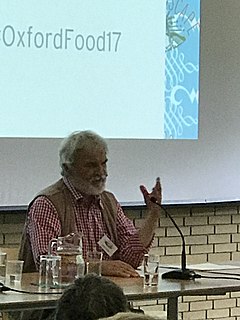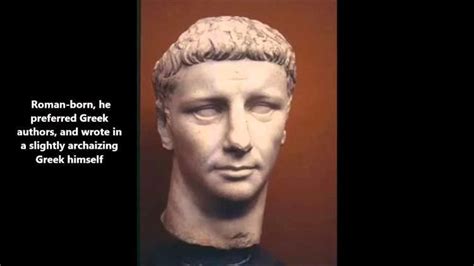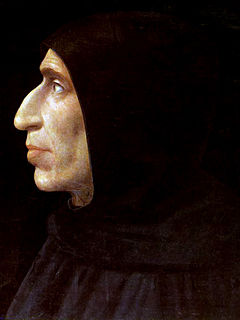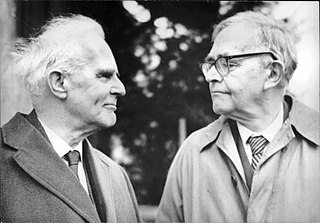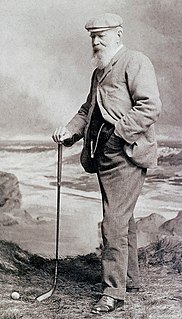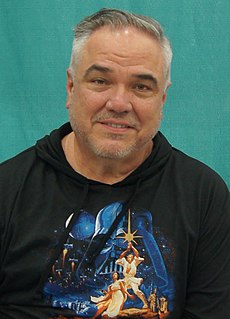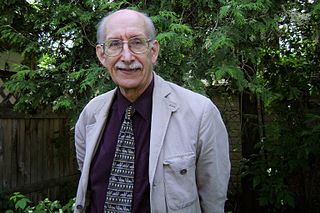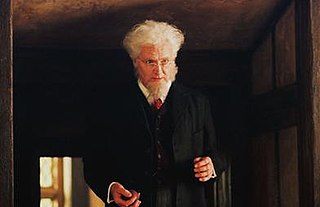Top 594 Plato And Aristotle Quotes & Sayings
Explore popular Plato And Aristotle quotes.
Last updated on April 14, 2025.
The real community of man, in the midst of all the self-contradictory simulacra of community, is the community of those who seek the truth, of the potential knowers, that is, in principle, of all men to the extent they desire to know. But in fact this includes only a few, the true friends, as Plato was to Aristotle at the very moment they were disagreeing about the nature of the good.
Socrates: Have you noticed on our journey how often the citizens of this new land remind each other it is a free country? Plato: I have, and think it odd they do this.Socrates: How so, Plato?Plato: It is like reminding a baker he is a baker, or a sculptor he is asculptor.Socrates: You mean to say if someone is convinced of their trade, they haveno need to be reminded.Plato: That is correct.Socrates: I agree. If these citizens were convinced of their freedom, they would not need reminders.
For the Platonic or Aristotelian philosophy, it is of no importance whether Plato or Aristotle ever lived. For the mystical practice of an Indian, Persian, Chinese, or Neo-Platonic mystic it is a matter of indifference whether Rama, Buddha, Laotse, or Porphyrius are myths or not. The mystic has no personal relation to them. It is not here a question of somebody telling me the truth which of myself I cannot find, but of my finding an access to the depths of the world in the depths of my soul.
Was it Aristotle who said the human soul is composed of reason, will, and desire?” “No, that was Plato. Aristotle and Plato were as different as Mel Tormé and Bing Crosby. In any case, things were a lot simpler in the old days,” Komatsu said. “Wouldn’t it be fun to imagine reason, will, and desire engaged in a fierce debate around a table?
Socrates called beauty a short-lived tyranny; Plato, a privilege of nature; Theophrastus, a silent cheat; Theocritus, a delightful prejudice; Carneades, a solitary kingdom; Aristotle, that it was better than all the letters of recommendation in the world; Homer, that it was a glorious gift of nature; and Ovid, that it was favor bestowed by the gods.
The knowledge that is suited to our situation and powers, the whole compass of moral, natural, and mathematical science, was neglected by the new Platonists; whilst they exhausted their strength in the verbal disputes of metaphysics, attempted to explore the secrets of the invisible world, and studied to reconcile Aristotle with Plato, on subjects of which both these philosophers were as ignorant as the rest of mankind.
Prophecy is rash, but it may be that the publication of D.T. Suzuki's first Essays in Zen Buddhism in 1927 will seem to future generations as great an intellectual event as William of Moerbeke's Latin translations of Aristotle in the thirteenth century or Marsiglio Ficino's of Plato in the fifteenth.
All that is good in our history is gathered in libraries. At this moment, Plato is down there at the library waiting for us. So is Aristotle. Spinoza is there and so is Kats. Shelly and Byron adn Sam Johnson are there waiting to tell us their magnificent stories. All you have to do is walk in the library door and the great company open their arms to you. They are so happy to see you that they come out with you into the street and to your home. And they do what hardly any friend will-- they are silent when you wish to think.
If they [Plato and Aristotle] wrote about politics it was as if to lay down rules for a madhouse. And if they pretended to treat it as something really important it was because they knew that the madmen they were talking to believed themselves to be kings and emperors. They humored these beliefs in order to calm down their madness with as little harm as possible.
Plotinus is usually called the Founder of Neo Platonism and what that means is that in this philosophical circle, he was founding a kind of renewed attempt to understand the thought of Plato which however they were combining with the thought of other philosophers, including Aristotle, the Stoics and Pythagoreans and so on.
Through Plato, Aristotle came to believe in God; but Plato never attempted to prove His reality. Aristotle had to do so. Plato contemplated Him; Aristotle produced arguments to demonstrate Him. Plato never defined Him; but Aristotle thought God through logically, and concluded with entire satisfaction to himself that He was the Unmoved Mover.
Philosophy, beginning in wonder, as Plato and Aristotle said, is able to fancy everything different from what it is. It sees the familiar as if it were strange, and the strange as if it were familiar. It can take things up and lay them down again. It rouses us from our native dogmatic slumber and breaks up our caked prejudices.

